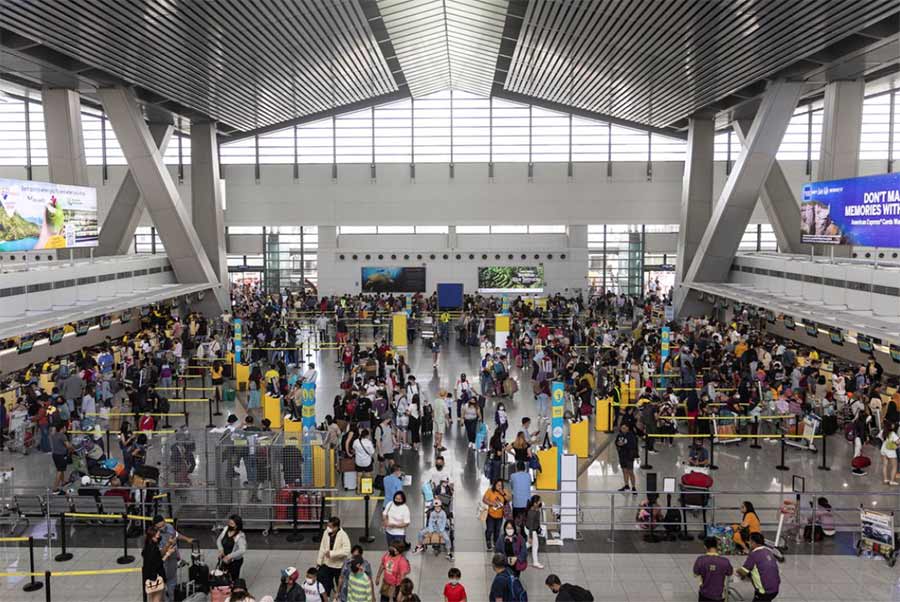The House of Representatives has approved on third and final reading a consolidated bill providing for a 30-year national infrastructure program from this year up to 2052, to ensure continuity regardless of the change in the administration and institutionalize the “Build Better More” program of the Marcos administration.
Surigao del Sur Rep. Romeo Momo, the principal author of House Bill (HB) No. 8078, said the country’s “mega” infrastructure projects would stand to benefit from the approval of the bill last Monday night.
Momo said HB 8078, the consolidated version of two bills — the other one by Bulacan Rep. Salvador Pleyto — is meant to bring “continuity and cohesion in the government’s infrastructure programs.”
“The 30-year infra program was conceptualized because in putting up a big project we need longer time,” said the lawmaker, a former undersecretary of the Department of Public Works and Highways (DPWH). “That’s why it is very necessary that big projects such as mega projects will be given more time.”
Momo said the proposed 30-year program would be “sufficient enough” to meet the majority of the country’s major projects. He also recalled his years with the DPWH when the department had to “forego finishing or continuing the project” when a new administration comes in.
“When the new administration comes in, sometimes it cannot continue. What’s hard here is that there was initial investment not only of the government but private sector as well,” he said.
Speaker Ferdinand Martin Romualdez said the bills aim to put in place a long-term system of funding and sustaining public infrastructure projects for the benefit of the people.
“This will be an all-encompassing program covering not only public works like roads, bridges and expressways, which we commonly refer to as infrastructure, but also energy, water resources, information and technology, agri-fisheries, food logistics, and socially-oriented structures such as school buildings and other educational facilities,” Romualdez said.
HB 8078 mandates the National Economic and Development Authority (NEDA), in consultation with implementing agencies and stakeholders, to formulate the 30-year infrastructure program in detail, including measurable targets and the selection, prioritization and phasing of specific projects.
The measure provides that the total annual allocation for the program shall be at least 5 percent of gross domestic product, provided that the constitutional command giving budgetary priority to education shall be observed.
The government may also tap official development assistance as funding source.
NEDA and the Department of Budget and Management (DBM) shall determine the funding allotment for each implementing agencies based on their priorities, absorptive capacity and performance.
Projects under the program may be undertaken by the national government through its implementing agencies, by the private sector through public-private-partnership (PPP) agreements, PPPs in partnership with local government units, or a combination of those modalities.
The proposed law defines the functions and responsibilities of implementing agencies in each sector of the 30-year national infrastructure program, starting with transport and logistics; energy; water resources; information and communications technology; social infrastructure; and agri-fisheries modernization and food logistics.
It also lists numerous “core national infrastructure projects” throughout the country in each sector.
NEDA is tasked to regularly update the list of core projects to reflect changes in development policies; economic, physical and social conditions; and the status of the projects.





